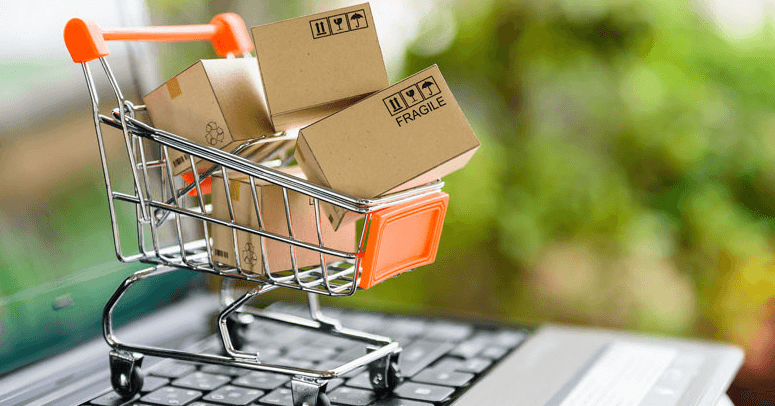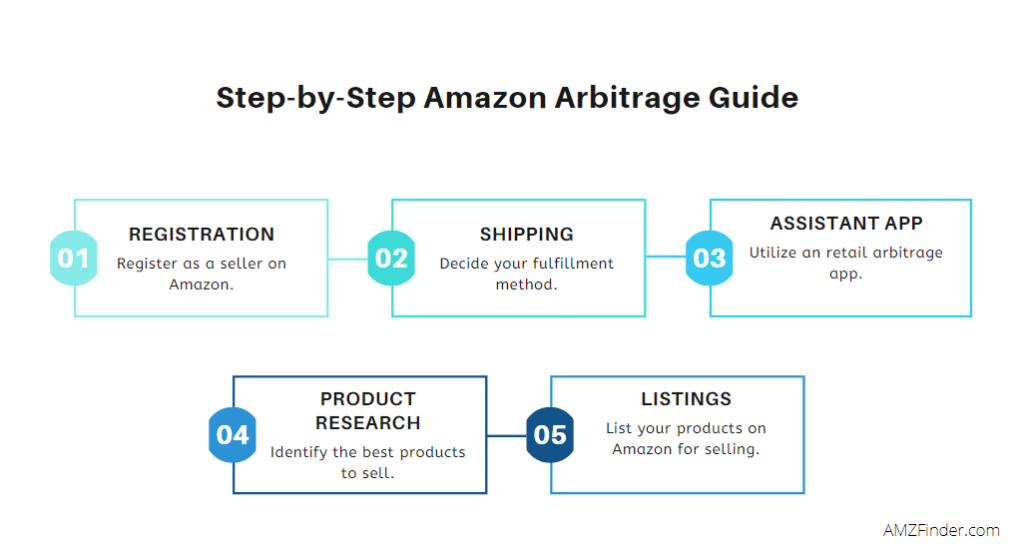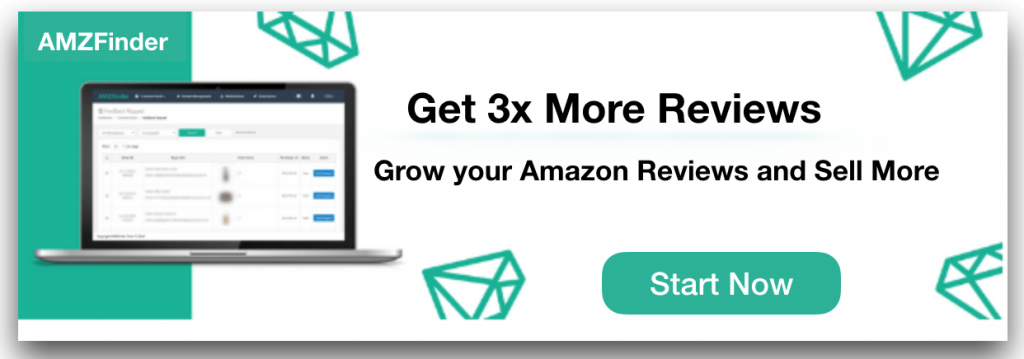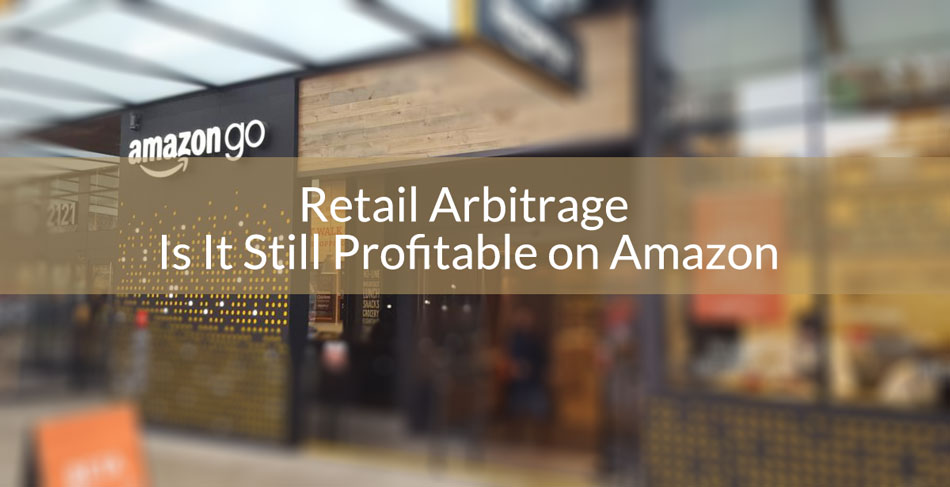The biggest challenge you’ll face when diving in the e-commerce world is sourcing the products you want to sell. Retail arbitrage is one of the simplest solutions, but is it still profitable on Amazon?
Before digging deeper into the matter, perhaps we should start from the basic concepts. If you’re new to this world, the first thing to do is to learn the difference between retail arbitrage and all other product sourcing option.
In this article, we will tell you what retail arbitrage is, how to score your deals, and what are the best apps you can use to ensure the success of your business.
1. What is Retail Arbitrage?

In simple words, retail arbitrage is the act of buying a stock of products from a retailer and sell it again at a higher price.
This would ideally score you a profit, but there are a few things that make this practice a lot trickier than originally believed.
Indeed, retail arbitrage seems simple at first glance. You don’t have to scour the manufacturer market, find a product, and order it.
You’ll have the product you want to sell readily available at the local superstore.
Thanks to the convenience of sourcing the products nearby, retail arbitrage could be a perfect start for beginners.
However, even if some people secure themselves a steady income in this way, it might not be the best long-term business solution.
Nevertheless, retail arbitrage is a great start, and if you don’t have the ambition of building a brand name, it can even give you a steady income for the years to come.
2. Is Retail Arbitrage Illegal?
A huge concern you might have is whether retail arbitrage is legal or not. In short, the practice is perfectly legal.
According to the US Supreme Court, a retailer cannot stop someone from reselling their products if the merchandise has been legally acquired.
According to the US Supreme Court, a retailer cannot stop someone from reselling their products if the merchandise has been legally acquired.
So, all you need to practice retail arbitrage in all pieces of mind is a receipt from the store where you bought the stock.
But just because it’s legal, it doesn’t mean it comes without challenges.
One of the biggest drawbacks is the harassment you’ll likely go through if you decide to sell branded items.
Even if there is nothing to stop you, some brands may try to intimidate you into stopping commercializing the products if you’re not an authorized reseller.
Another thing to consider is customer retention.
Because it’s unlikely to find the same products on clearance over and over again, you’ll likely sell all sorts of things. In most cases, this means new clients each time you change the inventory.
The products will also bear someone else’s brand, but if they are poor quality, they will damage your seller rating on Amazon.
On the contrary, if they are of good quality, people will most likely praise the brand and not you.
Establishing yourself as a brand under these circumstances is often near impossible, and you could just live with the idea that client retention may never happen.
Nevertheless, this option is one of the best you have to get started with minimal investment and little risks.
3. Retail Arbitrage Sourcing Tips
As mentioned above, retail arbitrage is undoubtedly one of the safest paths to building your Amazon seller career. Here are some useful product sourcing tips.
Check clearance aisles
Most superstores such as Walmart and Home Depot have clearance aisles where you can find a host of interesting deals.
The best thing about these places is that the products are usually really cheap.
Whether it’s a batch of affordable air fryers, cosmetics and skincare products, or outdoor furniture, there are endless possibilities to find when walking here.
Check all the stores
After finding the product you want to sell, visit all chain stores in your areas and try to get your hands on as many products as possible.
Check liquidation centers. Retailers usually sell surplus clearance items to liquidation centers, from where you can sometimes get them at even better deals.
Source your stock online
It is useless to deny that we live in a world where everything happens online. If you found a good deal in a superstore, check if they sell the product at the same price online too.
Buy in bulk, at least whenever possible
While retail arbitrage is a good start for an aspiring e-commerce owner, you may also want to focus on building yourself a name. That’s why you should aim to buy in bulk whenever possible.
4. Step-by-Step Amazon Arbitrage Guide

Retail arbitrage is still one of the most profitable ways to sell on Amazon this year. Here is a step-by-step guide to getting started.
Step 1: Register as a seller on Amazon.
If you haven’t already, signup to Amazon and create a seller account.
Step 2: Decide whether you want to ship the products yourself to potential clients or opt for Amazon FBA.
The latter is the best option, as you won’t need a warehouse and Amazon will handle everything for you, from order to shipping.
Step 3: Get the Amazon Seller App.
While there are dozens of retail arbitrage apps out there, this is arguably the only one you’ll need at the beginning.
The app lets you scan product bar codes and check how well they sell on Amazon, alongside the price tag you can aspire to get.
Step 4: Identify the best products to sell.
Put on your comfiest shoes, take a power bank with you, and start roaming the market. Use the tips above to find products on sale, then use the app to check how profitable they are.
When you found something that sells well, go on and make a bulk purchase.
You may also like: Everything You Need To Know About Amazon Product Research
Step 5: List the products on Amazon.
Log into your Amazon seller account and create the listing for your product. If you opted for Amazon FBA, also make all arrangements to send your inventory to Amazon’s warehouse.
Once your listing is approved, all you have to do is wait for orders to start flowing. If you want to save time on listing products, try our big list of Amazon listing tools.
You may also like: How to List Products on Amazon: Complete Guide for FBA Sellers
5. Best Retail Arbitrage Apps
While newbies may think that just passing past clearance aisles is enough to source profitable products, the truth is that you’ll need an app to check the profitability of a purchase.
There are quite a few apps out there you could use, but the ones we like best are the 5 listed below.
- Amazon Seller App: We already mentioned it above. This app lets you scan barcodes and returns a complete report on how well the specific product sells on Amazon and what’s its price on the marketplace.
- Scoutify: This app also comes with a built-in scanner and incorporates a host of interesting features, such as potential profit calculator. It also creates a buy list for you and pulls pricing data from other sites.
- Scoutly: Formerly known as FBAScan, this app also helps you scan and review a product of your choice in just seconds. One of its best features is the offline scanning mode that lets you perform complete searches even if you have connectivity issues.
- Zen Arbitrage: This one could be the perfect app for you if you’re planning to sell books. You can use it to search for books, calculate your potential profit, and even buy the stock online and send it to your or the FBA’s warehouse.
- Profit Bandit: It’s very similar to the other arbitrage apps above. You can use it to scan barcodes, calculate potential profits, extract pricing data from Amazon, and even see who your competitors are.
Recommended reading: Best 5 Amazon Seller Scanner Apps You Should Never Miss
6. Conclusion
Retail arbitrage is undoubtedly one of the most profitable ways to sell on Amazon. Its greatest advantage is accessibility.
This practice suits all Amazon sellers, from beginners to seasoned, due to the relative simplicity of sourcing products that sell.
Another advantage is that risks are usually minimal. If you’re just getting started, you can invest in small stock and see how it goes from there.
There is no need to lose high amounts on international orders, nor figure out how to find a suitable manufacturer.
For some, retail arbitrage is a long-term business solution that brings steady income. For others, it’s the first step towards creating a brand identity and private label products.
Regardless of which your ultimate goal really is, retail arbitrage is a good starting point that can bring a wealth of satisfaction.
Related Posts:
- Amazon Holiday Readiness Guide
- Amazon Shopping Events Calendar for Brand Owners
- Can You Use PayPal On Amazon? Yes, but not directly
- What Are Amazon Digital Services: Plus How To Cancel The Digital Charges
- How To Make Money On Amazon Without Selling Physical Products(Even If You Don’t Have a Budget)

